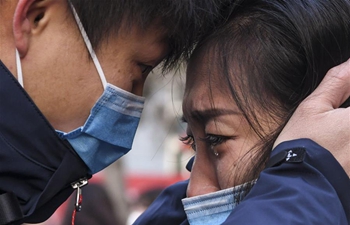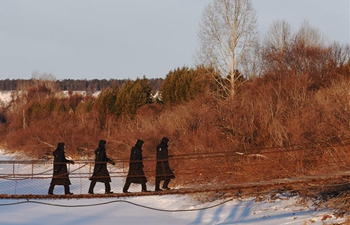by Olatunji Saliu
ABUJA, Jan. 29 (Xinhua) -- A total of 41 deaths have been recorded from the latest Lassa fever outbreak in Nigeria, as the acute viral hemorrhagic fever continues to spread in the most populous African country, the local center for disease control said on Wednesday.
In a statement made available to Xinhua in Abuja, the Nigeria Center for Disease Control (NCDC) said 258 confirmed cases of the disease were recorded in 19 out of the 36 states in the country since the beginning of the year.
There have been 689 suspected cases so far. The majority of the cases were recorded in the southern states of Ebonyi, Edo, and Ondo, the NCDC said.
The local disease control center said five health workers were among the victims. A national emergency operation center has been activated to coordinate response activities nationwide.
With the tropical climate in Nigeria, there is a high risk of infectious diseases like Lassa fever because of the vector. This also is the case for other West African countries with a similar environment, minister of health Osagie Ehanire said in a separate statement.
"Despite the increase in the number of confirmed cases, the overall case fertility rate for 2020 is 15 percent compared with 2019 which was 20 percent," Ehanire said.
According to him, health authorities in Nigeria were already working to achieve a single-digit case rate. This, he said, could be achieved through the continued support response activities, surveillance and contact tracing in affected states.
"Nigeria is contributing to research for the development of the Lassa fever vaccine to proffer a lasting solution to the disease," the minister said.
Experts say the cost of Lassa treatment is very high. Ribavirin, a potent antiviral medication, is known to be a very expensive drug in Nigeria.
Recent epidemiological data show that Lassa fever usually occurs in Nigeria during the dry season between January and April.
Human beings become infected with the Lassa virus from exposure to urine or feces of infected mastomys rats. Other than common preventive measures such as washing hands regularly, the World Health Organization has also recommended keeping cats.













